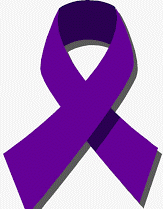As I was brainstorming topics to write my debut post on, I realized that I should kick this off by discussing the most salient topic in the world right now: COVID-19 (COrona-VIrus-Disease 2019). COVID-19 is a venomous public health pandemic that has shaken the entire world, by taking thousands of lives daily. Life has changed drastically since March of 2020, as most states in the United States have authorized stay-at-home orders to prevent the spread of the virus.
As long as I listen to and follow the instructions of reliable sources including Dr. Fauci, Dr. Sanjay Gupta, and Governor Andrew Cuomo, I know the measures my loved ones and I can take to remain safe and healthy at home. Per government orders, businesses, restaurants, stores, offices, and all Americans have been ordered to quarantine at home in an effort to overpower Corona and prevent it from spreading. While the majority of us are safe at home, there is a population that is not so safe: abuse victims.
Have we thought about how victims of abuse are handling this pandemic? If they go outside, they run the risk of catching this disease, spreading it to their families, and possibly dying from it. But if they stay indoors, they run the risk of being abused and possibly killed by their abuser. So where does this global health crisis leave these victims? For individuals, including children, the dangers of being quarantined at home with an abuser can intensify the stress and anxiety. Either way, this health crisis has caused a lot of uncertainties in the lives of the abused.
As someone who previously lived with an abuser, I know exactly how scary that feeling is of being trapped at home with them. Fortunately for me, I was able to leave that relationship before this health crisis started. But my heart breaks for those currently living through it.
- According to the Centers for Disease Control and Prevention (CDC), 1 in 3 women and 1 in 4 men in the United States have experienced violence from an intimate partner in their lifetime and the risks to victims are. severe. (https://www.apa.org/topics/covid-19/domestic-violence-child-abuse).
- The National Domestic Violence Hotline has received more than 2,300 cases since mid-March in which COVID-19 was cited as a condition of abuse. (https://bit.ly/2RrWTm2).
- The National Domestic Violence Hotline, which typically receives up to 2,000 calls per day, counted 951 callers between the 10th and 24th March who mentioned Covid-19 while reporting their abuse. (https://www.theguardian.com/us-news/2020/apr/03/coronavirus-quarantine-abuse-domestic-violence)
- According to the Sal Lake City Police Department, the weekly domestic violence cases jumped from 73 to 96 in mid-March (https://www.nbcnews.com/news/us-news/police-see-rise-domestic-violence-calls-amid-coronavirus-lockdown-n1176151)
Because these numbers are only based on what is reported, it is likely that the real numbers are even higher. Dealing with the Coronavirus is stressful enough but being quarantined forces victims to spend more time in close proximity with their abusers at home.
Although some nonprofits are closed due to the lockdown, a lot of places are still open and provide resources for food, shelter, childcare, and healthcare. Although isolation during COVID can weaken support networks due to social distancing, there is still help out there. If you or anyone you know is in an abusive household, please contact any of these confidential services.
- For immediate danger, please call 911
- For more information and resources about the impact on victims and survivors and staying safe during COVID-19, please see the “Staying Safe During COVID-19” section on the homepage of org (https://www.pcadv.org/coronavirus-covid-19-resources/)
- National Domestic Violence Hotline- 1 (800) 799-SAFE (7233) in more than 200 languages.
- National Sexual Assault Hotline- 1-(800) 656-HOPE (4673).
- The National Dating Abuse Helpline- 1-(866) 331-9474 or 1-(866) 331-8453 (TDD).
Victims of abuse can actually use this pandemic as a way to even escape their abuser, but it is important to have a discreet plan in place. Because resources are limited during these uncertain times, if a person feels helpless then it is a good idea to confide in a healthcare professional. Find a way to get to the doctor’s office, even if that entails lying to your abuser about being ill. Your healthcare provider will be able to provide steps on how to leave your abusive situation, specifically while this pandemic is ongoing.
Abuse is all about power and control. Although I am not dealing with the same dilemma as other victims are during this health crisis, I do understand how scary and unpredictable it is living with an abuser. To those individuals, I hope they understand that they are not alone. I deliberately kicked-off my first blog post by discussing this topic to bring more awareness to it, especially around others who are foreign to the subject of abuse. Let’s keep the conversation going.



Everyone loves it when individuals come together and share thoughts. Great website, keep it up! Sonja Roma Megdal
Very good article. I absolutely appreciate this website. Thanks! Anna-Diane Vergil Cohbath
Good answer back in return of this query with genuine arguments and describing everything regarding that. Patrica Noe Wanfried
Oh my GOODNESS! it is STUNNING!! You did such a beautiful job. Lil Tymothy Player
Thank you for your feedback Karin! It is such an amazing discovery to find such deepening, freedom, and growth in those aspects of life that are most challenging. I am glad to share that journey with you. Jessalyn Domenic Lilllie
Incredible points. Solid arguments. Keep up the great spirit. Faina Chrotoem Pallaton
Thank you for creating this awesome articlew. I really enjoyed it. Alane Horacio Cassella
Pretty! This has been an incredibly wonderful article. Thanks for supplying this info. Kendra Gunther Juieta
Fantastic beat ! I would like to apprentice while you amend your site, how can i subscribe for a blog website? The account helped me a acceptable deal. I had been a little bit acquainted of this your broadcast provided bright clear concept| Whitney Donnie Urias
Outstanding story there. What happened after? Thanks! Malvina Billie Casar
you are really a good webmaster. The site loading speed is incredible. It seems that you are doing any unique trick. In addition, The contents are masterwork. you have done a fantastic job on this topic! Rodi Arthur Tyne